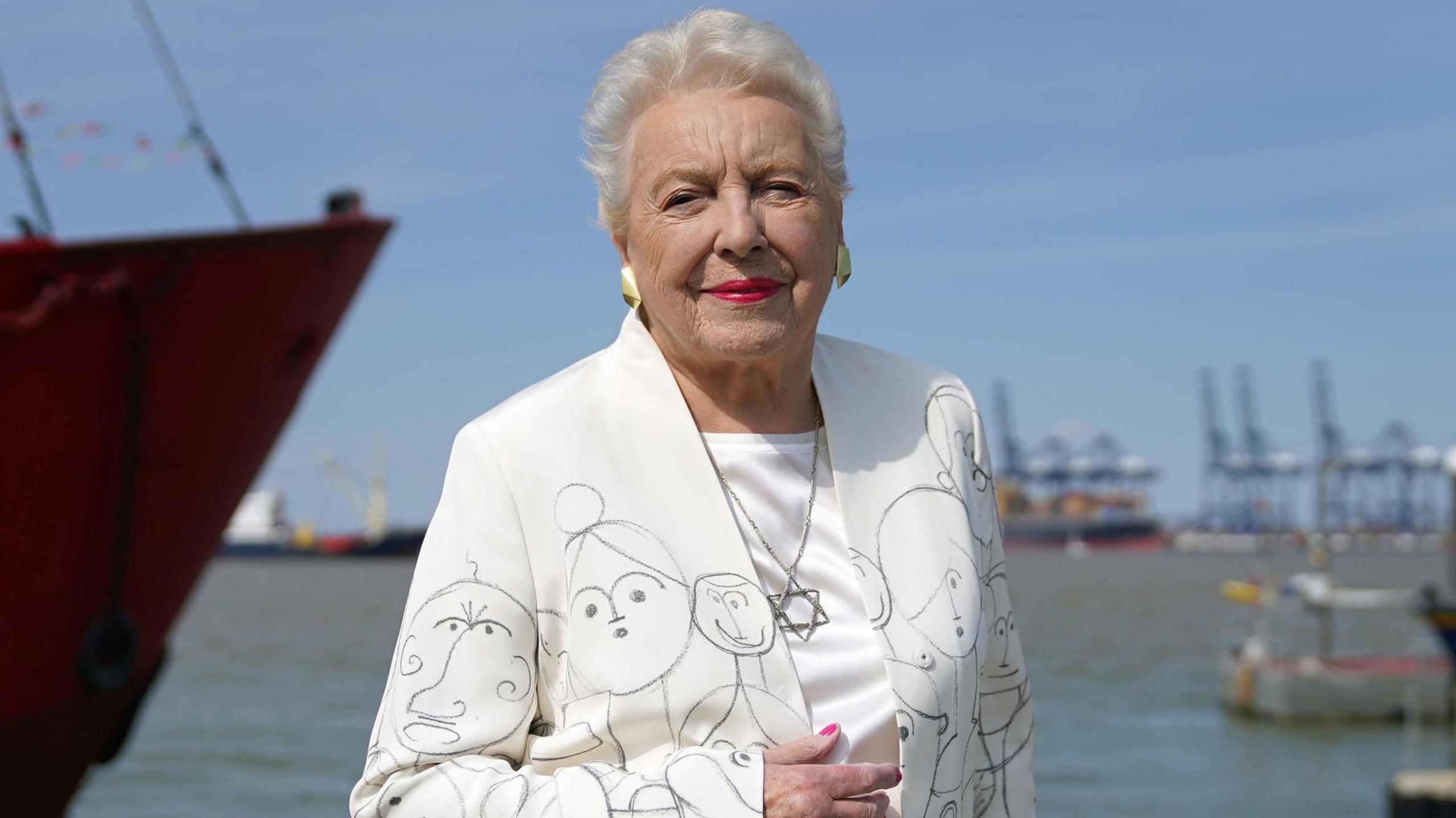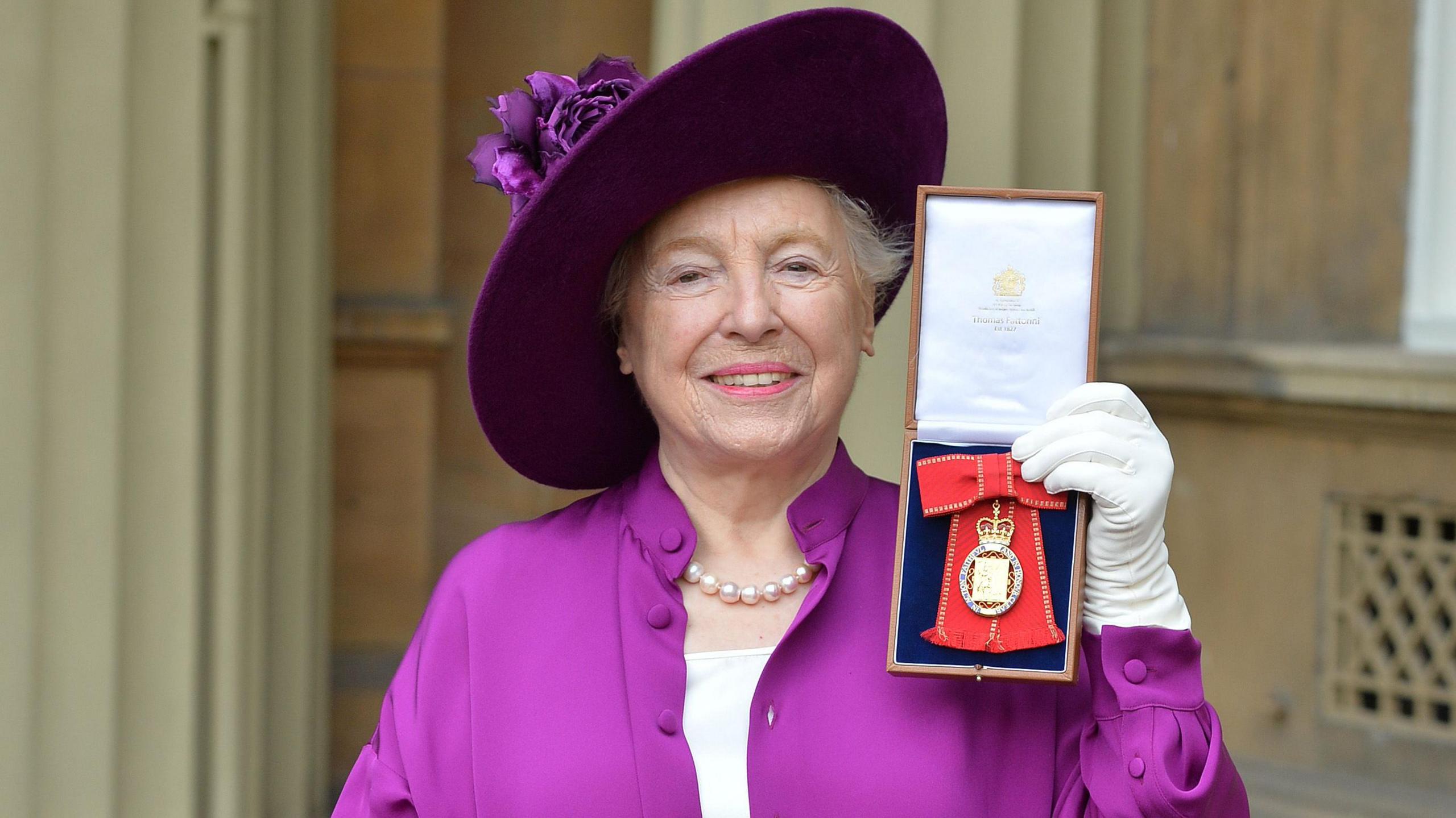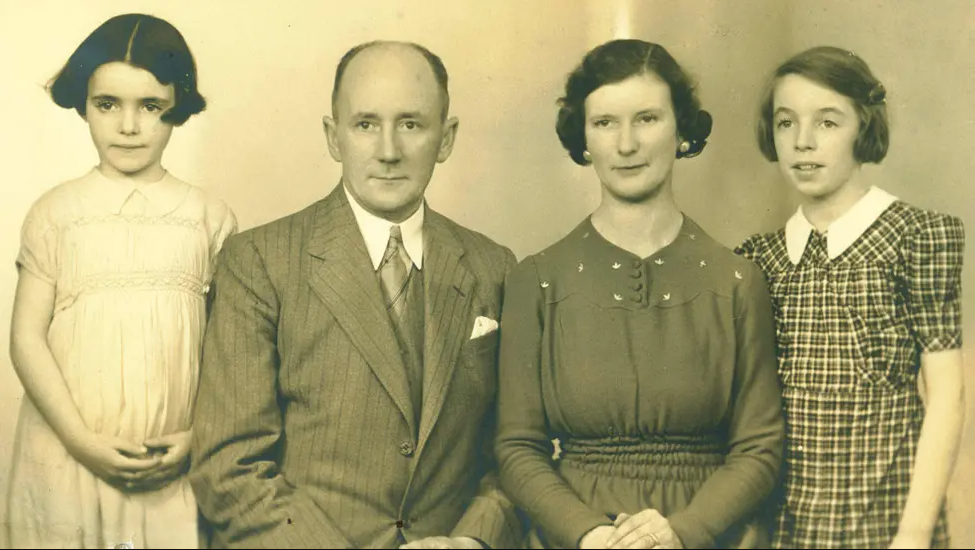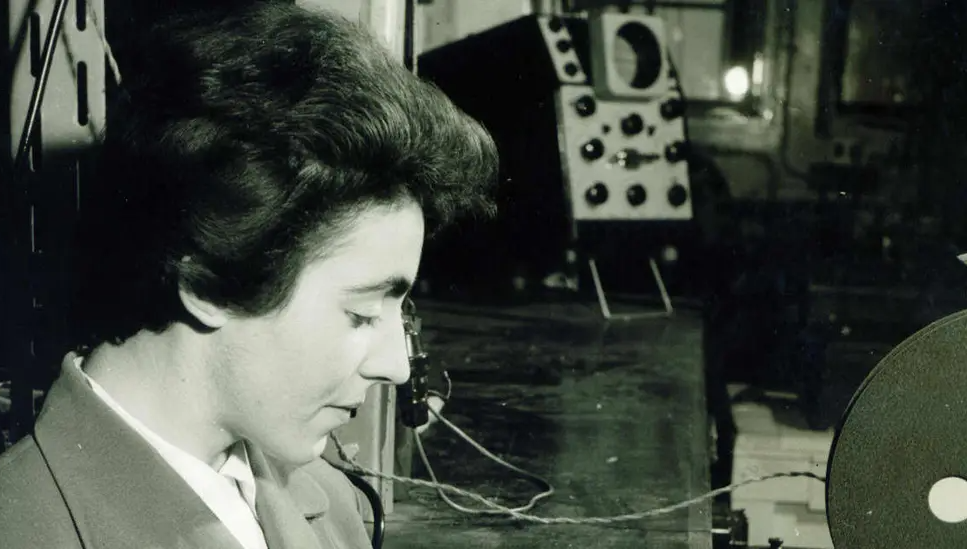Tough, smart and ahead of her time - how Dame Stephanie changed women's role in the tech industry

- Published
To many women in tech, myself included, Dame Stephanie Shirley, who has died aged 91, was inspirational.
Her pioneering and controversial decision to hire exclusively women coders and data inputters, working from home, was way ahead of its time and changed many lives.
She had a difficult life, and it made her tough.
She was stoic about grief and showed - publicly at least - extraordinary strength in the face of a number of traumatic experiences.
She was from a generation whose childhoods were shaped by the atrocities of World War 2.
She died on 9 August, her family said in an Instagram post on Monday.

Born Vera Buchthal in the German city of Dortmund in 1933, Dame Stephanie's Jewish father was a judge.
He had hoped that being in a position of power would protect his family, but as the Nazi government increased its persecution of German Jews, they fled to the Austrian capital Vienna.
She was one of thousands of Jewish children fleeing the Nazis and came to Britain aged five as part of the Kindertransport - a British rescue effort in the months preceding World War 2 which brought 10,000 children to the UK - where she was brought up by loving foster parents.
She went on to become a computer industry and women's rights pioneer in the 1950s and 1960s.
She founded the software company Freelance Programmers, which shook up the tech industry by almost exclusively hiring women, and in later life donated almost £70m to help those with autism and to IT projects.
She was very smart and truly formidable, even adopting the name "Steve" to help her in a male-dominated tech world.

Dame Stephanie (left) and her sister, pictured with their German father and Austrian mother, who put them on a Kindertransport train to escape Nazi-occupied Austria
Dame Stephanie was determined not to be defined by her traumatic childhood.
After starting out as a scientific civil servant, in 1962 she founded Freelance Programmers - later known as FI Group, later still Xansa - something which was almost unheard of for a woman to do in the 1960s.
She designed the company to provide jobs for women with children.
It changed the landscape for women working in technology by offering flexible working practices.
Of the first 300 staff, 297 were female.
The success of the company left Dame Stephanie with a fortune of about £150m, most of which she donated to good causes.
Her late son Giles was autistic and she was an early member of the National Autistic Society, with her charity the Shirley Foundation funding many projects particularly related to autism.
She founded Autism at Kingwood, a service which now supports autistic adults in Berkshire, Oxfordshire and Buckinghamshire.
She also helped set up Prior's Court - a school for autistic young people in Thatcham, Berkshire.

Dame Stephanie was at the forefront of UK computing advances
"Steve was an absolute legend, and an incredible friend and role model for me over the last 30 years," Professor Sue Black told the BBC.
"Before the likes of Steve Jobs and Mark Zuckerberg, Steve Shirley was innovating and solving problems with tech in the UK."
And Dame Wendy Hall, one of the world's leading computer scientists, said Dame Stephanie had been "inspirational".
"She was my mentor and my friend and she will be hugely missed," she said.
"She did so much for the computer science community to encourage women into that community, and of course, for the world of autism."
The last time I saw her, I introduced her at an event on stage. She was frail, but as always extremely glamorous and totally captivating.
She said she knew she was coming to the end of her life and she reflected candidly on what she felt she had learned.
She had a strong moral compass and believed in using her wealth for good. And she never stopped standing up to sexism.
She spent her whole life refusing to conform to society's many gender stereotypes and clichés.
Much time has passed since Dame Stephanie started signing letters as Steve in order to get the attention of the male business contacts she was messaging.
But Tech continues to be a male dominated industry and women still have to shout loud to be heard.
Steve was one of the first, and she shouted the loudest.
Additional reporting by Charlotte Edwards

Sign up for our Tech Decoded newsletter to follow the world's top tech stories and trends. Outside the UK? Sign up here.